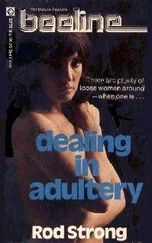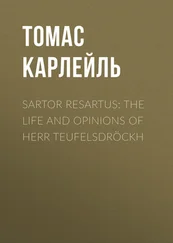Vladimir Nabokov - Strong opinions
Здесь есть возможность читать онлайн «Vladimir Nabokov - Strong opinions» весь текст электронной книги совершенно бесплатно (целиком полную версию без сокращений). В некоторых случаях можно слушать аудио, скачать через торрент в формате fb2 и присутствует краткое содержание. Город: New York, Год выпуска: 1990, Издательство: First Vintage International Edition, Жанр: Классическая проза, на английском языке. Описание произведения, (предисловие) а так же отзывы посетителей доступны на портале библиотеки ЛибКат.
- Название:Strong opinions
- Автор:
- Издательство:First Vintage International Edition
- Жанр:
- Год:1990
- Город:New York
- ISBN:нет данных
- Рейтинг книги:4 / 5. Голосов: 1
-
Избранное:Добавить в избранное
- Отзывы:
-
Ваша оценка:
- 80
- 1
- 2
- 3
- 4
- 5
Strong opinions: краткое содержание, описание и аннотация
Предлагаем к чтению аннотацию, описание, краткое содержание или предисловие (зависит от того, что написал сам автор книги «Strong opinions»). Если вы не нашли необходимую информацию о книге — напишите в комментариях, мы постараемся отыскать её.
Strong opinions — читать онлайн бесплатно полную книгу (весь текст) целиком
Ниже представлен текст книги, разбитый по страницам. Система сохранения места последней прочитанной страницы, позволяет с удобством читать онлайн бесплатно книгу «Strong opinions», без необходимости каждый раз заново искать на чём Вы остановились. Поставьте закладку, и сможете в любой момент перейти на страницу, на которой закончили чтение.
Интервал:
Закладка:
1. For the sake of the resonant valor of ages to come,
for the sake of a high race of men,
I forfeited a bowl at my fathers' feast,
4. and merriment, and my honor.
On my shoulders there pounces the wolfhound age,
but no wolf by blood am I;
better, like a fur cap, thrust me into the sleeve
8. of the warmly fur*coated Siberian steppes,
so that I may not see the coward, the bit of soft
muck,
the bloody bones on the wheel,
so that all night the blue-fox furs may blaze
12. for me in their pristine beauty.
Lead me into the night where the Enisey flows,
and the pine reaches up to the star,
because no wolf by blood am I,
16. and injustice has twisted my mouth.
A number of details in the text are ambiguous (for example, the word translated as «coward» is a homonym of the old Russian trus, meaning «quaking» (thus «earthquake»), and the word translated as «injustice» has the additional meaning of «falsehood»), but I will limit myself to discussing some of the quite unambiguous passages misinterpreted, or otherwise mangled, by Robert Lowell in his «adaptation» on pp. 143 and 145 of the same collection.
Line 1, «resonant valor», gremuchaya doblest'(nom.): Mandelshtam improves here on the stock phrase «ringing glory» (gremyashchaya slava). Mr. Lowell renders this as «foreboding nobility», which is meaningless, both as translation and adaptation, and can be only explained by assuming that he worked out an ominous meaning from the «rumbling» improperly given under gremuchiy (see also gremuchaya zmeya, rattlesnake) by some unhelpful informer, e.g. Louis Segal, M.A., Ph.D. (Econ.), D. Phil., compiler of a RussianEnglish dictionary.
Line 5, «wolfhound», volkodav: lexically «wolfcrusher», «wolfstrangler»; this dog gets transformed by Mr. Lowell into a «cutthroat wolf», another miracle of misinformation, mistransfiguralion, and misadapiaiion.
Line 6, «wear the hide of a wolf» (Lowell) would mean to impersonate a wolf, which is not at all the sense here.
Line 8, actually «of the Siberian prairie's hot furcoat», zharkoy shuby sibirskih stepey. The rich heavy pelisse, to which Russia's wild East is likened by the poet (this being the very blazon of its faunal opulence) is demoted by the adapter to a «sheepskin» which is «shipped to the steppes» with the poet in its sleeve. Besides being absurd in itself, this singular importation totally destroys the imagery of the composition. And a poet's imagery is a sacred, unassailable thing.
Lines 11-12: the magnificent metaphor of line 8 now culminates in a vision of the arctic starlight overhead, emblemized by the splendor of gray-blue furs, with a suggestion of astronomical heraldry (cf. Vulpecula, a constellation). Instead of that the adaptor has «I want to run with the shiny blue foxes moving like dancers in the night», which is not so much a pretty piece of pseudo-Russian fairytale as a foxtrot in Disneyland.
Line 13: Why does the adaptation read «there the Siberian river is glass»? Perhaps, because the techyot (flows) of the text gives tekla in the past tense feminine, and its form stekla (flowed down) also happens to be the genitive case of steklo (glass) — a really outstanding howler, it my supposition is correct, and an inexplicable cliche, if it isn't.
Line 14, «pine», sosna: the adapter has «fir tree», another plant altogether. This is a mistake often committed on both sides of the Bering Strait (and condoned, I note, by Dr. Segal).
Line 16: «or slaver in the wolf trap's steel jaw» (Lowell) — an ending that snaps as it were the very backbone of Mandelshtam's poem
I am well aware that my laborious literal reproduction of one of the masterpieces of Russian poetry is prevented by the rigor of fierce fidelity from parading as a good English poem; but I am also aware that it is true translation, albeit stiff and rhymeless, and that the adapter's good poem is nothing but a farrago of error and improvisation defacing the even better poem it faces in the anthology. When I think that the American college student of today, so docile, so trustful, so eager to be led to any bright hell by an eccentric teacher, will mistake that adaptation for a sample of Mandelshtam's thought («the poet compares the sheepskin sent him from abroad to the wolf hide he refuses to wear»), I cannot help feeling that despite the good intentions of adapters something very like cruelty and deception is the inevitable result of their misguided labors.
Although some of the English versions in Miss Carlisle's collection do their best to follow the text, all of them for some reason or other (perhaps in heroic protection of the main offender) are branded Adaptations». What, then, is there especially adaptive or adaptational in an obvious travesty? This I wish to be told, this I wish to comprehend. «Adapted» to what? To the needs of an idiot audience? To the demands of good taste? To the level of one's own genius? But one's audience is the most varied and gifted in the world; no arbiter of genteel arts tells us what we can or can't say; and as to genius, nowhere in those paraphrases is the height of fancy made to fuse with the depth of erudition, like a mountain orbed by its reflection in a lake — which at least would be some consolation. What we do have are crude imitations, with hops and flutters of irresponsible invention weighed down by the blunders of ignorance. If this kind of thing becomes an international fashion 1 can easily imagine Robert Lowell himself finding one of his best poems, whose charm is in its concise, delicate touches («. . . splinters fall in sawdust from the aluminum-plant wall . . . wormwood . . . three pairs of glasses . . . leathery love») adapted in some other country by some eminent, blissfully monolingual foreign poet, assisted by some American expatriate with a nottooextensive vocabulary in any language. An outraged pedant, wishing to inform and defend our poet, might then translate the adaptation back into English («. . . I saw dusty paint split and fall like aluminum stocks on Wall Street . . . six glasses of absinthe . . , the football of passion»), I wonder on whose side the victim would be.
Written on September 20, 1969, and published on December 4, 1969, in The New York Review of Books. I fervently hope that this little essay managed to reach the poet's widow in Soviet Russia.
7. ANNIVERSARY NOTES
My first intention was to write an elaborate paper on this TriQuarterly number (17, Winter 1970, Northwestern University, Evanston, Illinois) which is dedicated to me on the occasion of my seventieth birthday. I soon realized, however, that I might find myself discussing critical studies of my fiction, something I have always avoided doing. True, a festschrift is a very special and rare occasion for that kind of sport, but I did not wish to create even the shadow of a precedent and therefore decided simply to publish the rough jottings I made as an objective reader anxious to eliminate slight factual errors of which such a marvelous gift must be free; for I knew what pains the editors, Charles Newman and Alfred Appel, had taken to prepare it and remembered how firmly the guest coeditor, when collecting the ingredients of this great feast, refused to show me any plum or crumb before publication.
BUTTERFLIES
Butterflies are among the most thoughtful and touching contributions to this volume. The old-fashioned engraving of a Catagramma-like insect is delightfully reproduced twelve times so as to suggest a double series or «block» of specimens in a cabinet case; and there is a beautiful photograph of a Red Admirable (but «Nymphalidae» is the family to which it belongs, not its genus, which is Vanessa — my first bit of carping).
ALFRED APPEL, JR.
Читать дальшеИнтервал:
Закладка:
Похожие книги на «Strong opinions»
Представляем Вашему вниманию похожие книги на «Strong opinions» списком для выбора. Мы отобрали схожую по названию и смыслу литературу в надежде предоставить читателям больше вариантов отыскать новые, интересные, ещё непрочитанные произведения.
Обсуждение, отзывы о книге «Strong opinions» и просто собственные мнения читателей. Оставьте ваши комментарии, напишите, что Вы думаете о произведении, его смысле или главных героях. Укажите что конкретно понравилось, а что нет, и почему Вы так считаете.










